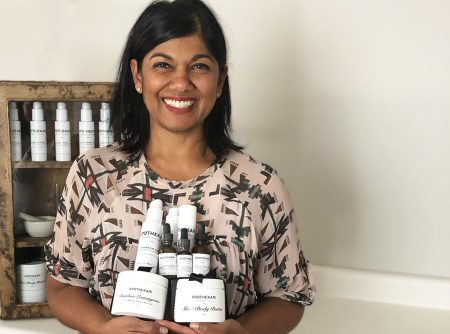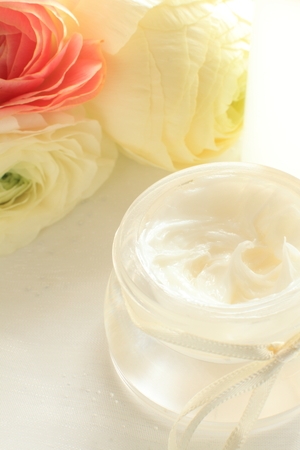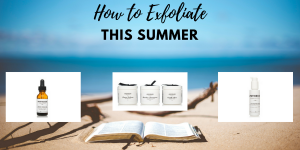Do you need a moisturizer? You may or you may not and usually, your skin will let you know. Since many of us have grown up with a ritual that involves cleansing, toning and moisturizing, it probably shouldn’t come as a surprise that this is what women think they need to keep their skin looking its very best. I always assume that skin dryness is the issue that people are trying to fix with a moisturizer, but I’m never quite sure.
Is your skin dry, dehydrated, flaking, red, sore? Any of these symptoms may have you reaching for the moisturizer but a moisturizer may not be what you need! ‘Moisturizers’ comprising animal fats and plants have been used since very early times by indigenous people of Africa, South America and North America to hydrate and protect skin against hot weather and the sun. Today’s versions are a mixture of naturally occurring skin lipids, oils, humectants and emollients, which are designed to make the skin’s outermost layer – the epidermis – feel softer and suppler. They also hydrate skin by reducing water loss.
Moisturizers can be an integral part of a skin care regimen, but they certainly shouldn’t be considered as the only or the most important part of any routine. So do you need a moisturizer? Here’s what you may need instead:
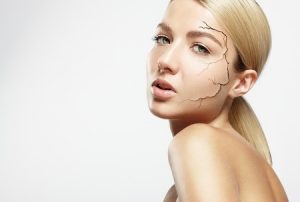 1. Dry or Dehydrated Skin?
1. Dry or Dehydrated Skin?
Yes, a moisturizer may be helpful here. By sealing in moisture (after washing or bathing), a moisturizer can deliver emolliating ingredients and prevent further moisture loss. Avoid products containing alcohol, which can contribute to further dryness. If you have oily skin which is dry from over-treatment with harsh, abrasive and/or drying topicals, lighter hydration, in the form of a serum may be a better option. A rich and heavy cream can clog pores leaving you in the same situation you started off in.
2. Flaking Skin?
If your skin is flaking, do you need a moisturizer? In this case, you most likely need to exfoliate and not moisturize. Our skin cells turn over with new skin cells once about every 28 days and this process slows as we age. A build up of dead skin cells can leave skin looking old, dull and dry with flakiness. Exfoliation helps to remove this top layer of dead skin cells revealing the newer and healthier ones below. If you exfoliate, you may not require moisturizer as often or as much. Many good exfoliating agents, including alpha hydroxy acids (AHAs) are available. As an added bonus, any of the other skin care treatments you apply, including a moisturizer, will be absorbed much better.
You may think this counterintuitive, but in the case of flaking skin, retinoids (such as retinol, retinaldehyde and retinoic acid) may be your best friend. Retinoids promote faster skin cell turnover and encourage collagen production. Newer skin cells are healthier skin cells, which will displace the older, unhealthier ones sitting at the top of your face. There’s a method to the madness of using retinoids with dry skin!
Find gentle retinaldehyde in A is for Anti-Aging Retinal Serum.
3. Dull Skin
Like flaking skin, dull skin benefits from exfoliation. Old skin cells resting on top of newer ones, lead to dull, lifeless and aged looking skin. These old skin cells may not be flaking yet, but left unchecked, they soon will be. Follow the tips above (including the use of retinoids) and skin will appear refreshed and younger looking.
You may want to consider adding in a treatment containing Vitamin C, which helps to even out and brighten skin tone. As an added bonus, Vitamin C possesses antioxidant activity, which will help to protect skin against environmental damage. It also boosts collagen production and helps skin feel firmer. Vitamin C as L-ascorbic acid is in Bespoke Vitamin C Serum 10% or 15%.
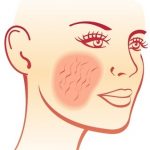 4. Red Skin
4. Red Skin
Redness is an indication of inflamed skin. It is also associated with rosacea, a condition experts believe is due to a combination of genetic and environmental factors. The top causes of skin irritation are unprotected sun exposure and other environmental factors including pollution and low humidity.
Topical products with sensitizing ingredients including fragrances and essential oils may be problematic. Harsh scrubs and hot water may also be to blame. You may be allergic to something in your diet or environment. If this is the case, it’s important to identify it in and remove it in order to allow your skin to improve. Working with a good allergist or dermatologist can be very helpful in this case.
Do you need a moisturizer for red skin? Red skin benefits from soothing products – whether they are moisturizers, serums, creams or lotions. Ensure that they are free from fragrances, alcohol and other harsh ingredients. The daily use of a well formulated sunscreen can help to protect against the sun and environment. Look for ingredients including aloe, bisabolol, oat extract, licorice, antioxidants (vitamin c, resveratrol, curcurmin) and zinc oxide to calm.
5. Sore Skin
Much like red skin, skin that is sore suffers from irritation and often, inflammation. The advice to handling sore skin is similar to that offered for red skin. Identify and remove allergens, use good sun protection and avoid harsh ingredients and treatments. Anti-inflammatories and skin soothing ingredients as above, are your best friend.
Both red skin benefit from gentle treatments like Daily Infusion Moisturizer and Cloud Nine Foaming Cleansing Crème, suitable for individuals with sensitive skin.
So, “Do you need a moisturizer?” Maybe. But before automatically reaching for one, consider if you really need one. And the next time you ask me, don’t be surprised if I recommend something entirely different instead!
